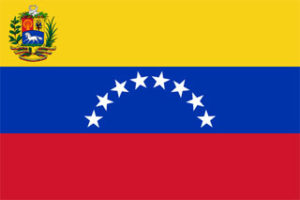

This blog is admittedly a stretch, but please stay with me. What do Venezuela, Syria, North Korea, and Cuba have in common? They are all dying nations ruled by authoritarians and whose citizens are severely and violently repressed even to the point of starvation. I’m sure I am omitting some other fine examples of central planning – Equatorial Guinea, for instance. What else do they have in common? They are all still alive as nations. Maybe just barely, but still alive. How many of you would have taken the bet 4 years ago that any of these states would no longer be around by now? Maybe you would have, but it would not have been a good bet. That’s my point. It is very hard to tell when a state will die, or otherwise, cease to exist.
Likewise, it is difficult to predict or to make money wagering when and if corporations will cease to exist. How would you make such a wager if you want to? Sell short. It is very difficult – not impossible, but very difficult – to make money by selling short. Some investors have made fortunes by selling short – William Ackman (Pershing Square) and David Einhorn (Greenlight Capital) are two noted short sellers. Ackman made a big splash a couple of years ago by selling short Herbalife. Ackman’s research was well-founded. There was a lot of evidence that Herbalife’s product was being wasted: purchased by would-be Herbalife vendors with dreams of stay-at-home businesses. There was little evidence that Herbalife product was being bought by end-users in the general public. Herbalife’s multi-level-marketing program looked from the outside like a Ponzi scheme. Ackman wagered a lot of money – hundreds of millions of dollars – that Herbalife stock would decline, and spent tens of millions of dollars on an ad campaign to try to force Herbalife stock down. How did that all work out for him? Not well. Herbalife did decline for a short time, but then it rallied. According to Fortune Magazine, Ackman lost about $500 million shorting Herbalife.
Short Selling
The attitude of a short seller has to be very skeptical and cynical. They look at a product or a business and they see what is wrong with it and why it won’t work. Short sellers are problem finders, not problem solvers. Have you ever met anyone like this? Someone who objects to any idea you have, or any statement you make? Maybe your own children come to mind? That is the mindset you have to have to be a short seller. A pessimist to the core. Do you like working with a pessimist? Are you one yourself?
Optimist
This economy and this country weren’t built by pessimists. Steve Jobs is hailed as a visionary for his ability to see the future when he built the iPhone. Skeptics didn’t see things as Jobs did, and skeptics continue to write that we should be selling Apple now, that the new iPhone versions won’t live up to projections. Perhaps not, but they are singing an old tune. I am not advocating buying AAPL stock, but I am saying that there are always reasons to be skeptical, and it may be appealing to sell short when you are skeptical about a company, but it is very difficult to make money on the short end.
IMO
I still don’t like the prospects of the countries I mentioned – Venezuela in particular. I believe Venezuela could result in a refugee situation similar to that of Syria. But I wouldn’t want to bet that the Maduro government in Venezuela will soon go down. There is a lot of money at stake trying to keep Maduro in power – native Venezuela money, as well as Cuba money and personnel. Similarly, whereas I see danger ahead for some companies, I wouldn’t bet on their demise. You can short a stock and then be in the red for a long time waiting for it to go down. I am an optimist, and though I may hedge my bets, I still have money on the table on the long side.
